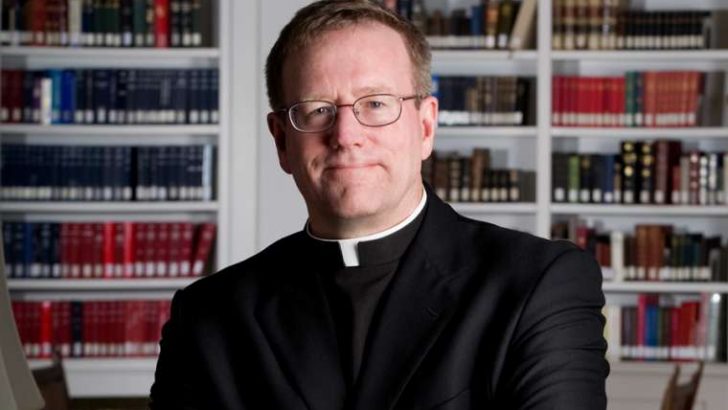The saints did not fall into the modern trap of letting particular worldly experiences ‘measure doctrine’, writes Editor Michael Kelly
Robert Barron has emerged as one of the most engaging thinkers in English-speaking Catholicism. A former seminary rector, he is now an auxiliary bishop in the sprawling Los Angeles archdiocese. I was delighted to be able to spend some time in Bishop Barron’s company earlier this year while on a visit to California.
At the heart of Bishop Barron’s articulation around the Faith is his ability to connect with modern culture. Part of this is his uncanny ability to coin a phrase.
His latest interest is what he describes as ‘beige Catholicism’ – a form of the Faith that seeks to be dominated by the prevailing culture.
This is a particular temptation in Ireland where we have been used to the culture being steeped in Catholicism. And one can sense the mourning amongst many Catholics here as they realise that the culture is – for good or for ill – no longer our own.
“Beige Catholicism,” according to the bishop, is the “dominance of the prevailing culture over Catholicism,” where Catholics are “too culturally accommodating” and “excessively apologetic”.
New model
Bishop Barron proposes a “new model for Church-culture dialogue” different from the “one-way quality of the conversation” prevalent today. Under this model of “beige Catholicism”, he noted, “the world sets the agenda for the Church”.
But the proper response to this is not a Church “doomed to a sectarian retreat” from the world, the bishop insisted.
Instead, he suggested, “the question is not whether the Church ought to engage in a dialogue with the wider culture, but rather, how?” And for this, the Church can look to the centuries of saints who successfully dialogued with the culture of their day while still proclaiming Jesus Christ, he said, giving examples like the apostle St Paul and St Augustine of Hippo.
According to Bishop Barron, the saints did not fall into the modern trap of letting particular worldly experiences “measure doctrine”. Rather, they had a Christo-centric dialogue where, as St Paul wrote in his letter to the Colossians, “in Him [Jesus] all things were created, things visible and invisible” and “He is before all things, and in Him all things hold together”.
Culture
The Church must identify what is bad with the culture and, like St Augustine did with “the corrupt society of ancient Rome”, respond with “honest and unambiguous opposition”, Bishop Barron said.
St Augustine “named the sins of the Roman social order and proposed an alternative, what he called the ‘civitas dei’, an order predicated upon the worship of the true God,” he continued.
However, he added, the assimilating Church should also be “eager to take in and take up what it can from the culture”.
“St Paul told us that in Christ’s light, we should test every spirit, rejecting what is bad, retaining what is good,” the bishop explained. And the Church in assimilating “doesn’t simply absorb” the “positive features of society” but “rather, it elevates them and perfects them, in accord with the great Catholic principles”.
Bishop Barron’s reflections are particularly fitting in Ireland where the loss of the Church’s influence in society has been particularly felt. But, if Catholics can see this time of exile as an opportunity for growth, the people of God can emerge with fresh vigour.


 Michael Kelly
Michael Kelly Bishop Robert Barron.
Bishop Robert Barron. 